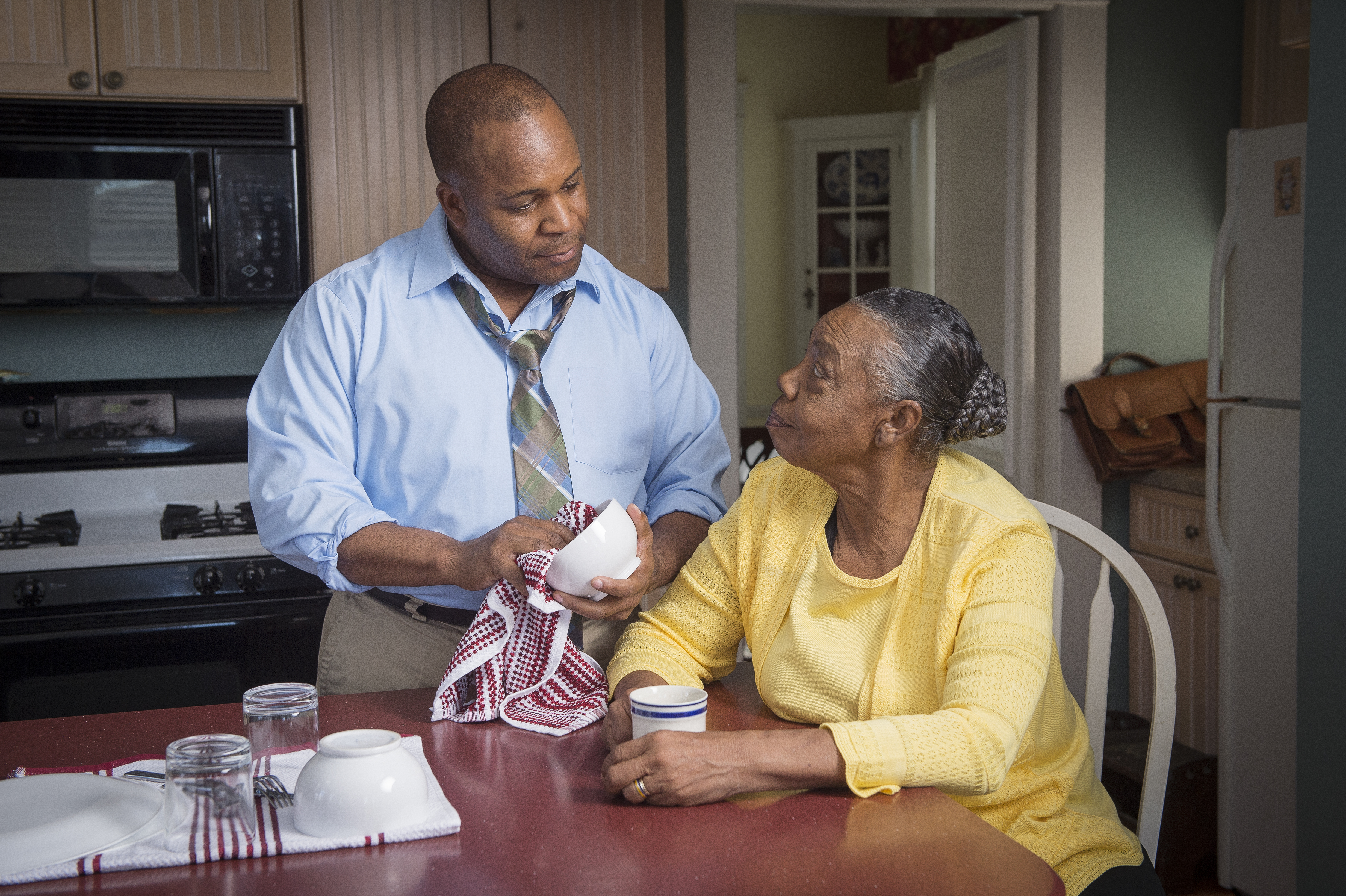AARP Hearing Center

Life as Shirley Loesch knew it changed drastically one morning in January, when she woke and realized she could not walk. The metastatic breast cancer she’d been living with for nine years was compressing her spinal cord.
Life also changed for her husband of 35 years, Michael Schultz, who suddenly became a caregiver.
“The emotional, physical and logistical hoops for both the new caregiver and person being cared for are tremendous and can be overwhelming,” says Schultz, 70, a retiree who spent his career working in philanthropy and is now AARP Oregon’s volunteer state president. His wife, a retired educator, turns 74 next month and is undergoing chemotherapy, radiation and physical therapy.
Whether the role comes suddenly or gradually, caregiving can present significant challenges. It can involve a range of duties—from going to medical appointments to paying bills and cooking meals, notes Bandana Shrestha, AARP Oregon’s state director. That’s on top of the stressful experience of witnessing a loved one’s health deteriorate.
AARP Oregon is hosting several training and educational events in June to help caregivers connect with one another and understand they “don’t have to do it alone,” Shrestha says.
One session will be led by Vicki Schmall, a professor emeritus of gerontology at Oregon State University, who will focus on self-care for those tending to a loved one. Schmall is coauthor ofThe Caregiver Helpbook and has developed aging-related training programs used in more than 40 states.
A second session—led by Ruth Cohen, a consultant and trainer who is past president of a national geriatric care association—will provide guidance on developing care plans and managing family dynamics. For more details, go to aarp.org/or.
The toll of caregiving
Eleven percent of Oregon’s population—470,000 people—were caring for a family member in 2021, according to AARP research. They provided 440 million hours of unpaid care, with an economic value of $8.7 billion.
Thirty-six percent of caregivers characterize their situation as highly stressful, according to a 2020 report from AARP and the National Alliance for Caregiving. The pressure on Oregon’s family caregivers is likely to grow as the state’s population ages.
Too often, caregivers fail to care for themselves, says Schmall, 77. They must “maintain their own physical, mental and emotional health” by taking breaks and asking for—and accepting—help. That includes moving the recipient to a facility if the care becomes too much, she says.
When her parents were in their 90s, Schmall’s mother, who had dementia, woke up one night and did not recognize her husband, who was her caregiver. She attacked him, and he had to be hospitalized. “It took what happened for Dad to even consider placement in a care facility,” Schmall says.
Schultz says that when he started volunteering with AARP Oregon, he never imagined that he would be a caregiver himself. His wife is now using a wheelchair and a walker, but she still needs help with various tasks. He says their friends have been bringing meals and providing other support.
“But ... I think of all the people who don’t have that circle of support,” he says. “People are really struggling.”
_____________________________
New long-term care protections for LGBTQ+
Oregon’s older LGBTQ+ adults gained new protections this year under a law that bars discrimination by long-term and community-based care facilities.
The law, passed in 2023 with support from AARP Oregon, makes it illegal for nursing homes, adult foster homes and assisted living facilities to discriminate against older LGBTQ+ adults. For example, long-term care providers cannot make decisions about admissions, transfers or room assignments based on a patient’s sexual orientation. It also bars discrimination on the basis of HIV status and requires facilities to train staff on the needs of LGBTQ+ and HIV-positive patients.
It provides “very specific nondiscrimination protections for those populations,” says Liz James, chair of the Oregon LGBTQ+ Aging Coalition. It’s “a very, very exciting success story.”
In a 2021 Oregon survey of LGBTQ+ residents 55 and over, nearly 60 percent of respondents said they had experienced discrimination during the previous year. Twenty-one percent of respondents living in residential settings, such as nursing homes, reported discrimination. The state’s Department of Human Services commissioned the survey.
Andrea Meyer, AARP Oregon’s director of government relations, says the results demonstrated the need for legislative action.
The law is “an important start,” she says. But “the proof will be in making sure that older LGBTQ+ Oregonians feel safe and are treated respectfully in our residential settings.”
Mary Dieter, a freelance journalist, spent two decades covering Indiana state policy and politics for The Courier Journal of Louisville, Kentucky.
For more on caregiving































































